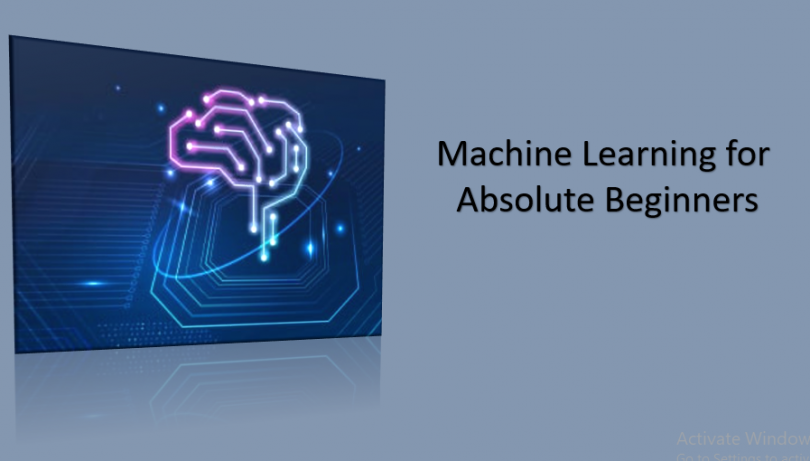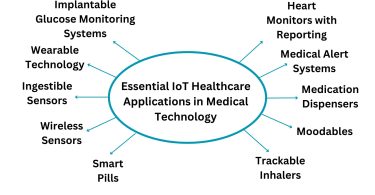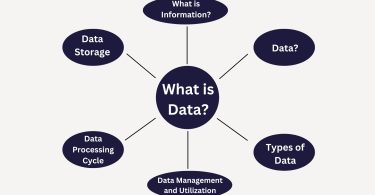Download this Machine Learning For Absolute Beginners PDF file free. Machine learning, an essential component of the expansive artificial intelligence domain, may appear overwhelming for newcomers. Nevertheless, by dissecting the learning process into manageable steps, one can transform it into an engaging and accessible adventure. This guide delves into foundational concepts and practical steps, facilitating your initiation into the realm of machine learning. At its essence, machine learning revolves around the creation of algorithms and models that enable computers to enhance their performance in specific tasks through exposure to data and experience. Unlike traditional programming, which relies on explicit instructions, machine learning systems learn and adapt dynamically from the information they receive. Two pivotal paradigms in machine learning are supervised and unsupervised learning. In supervised learning, algorithms undergo training on labeled datasets, where input data corresponds to specific outputs, allowing the algorithm to discern patterns and relationships. Conversely, unsupervised learning involves algorithms working with unlabeled data, autonomously uncovering patterns and structures.
For novices, familiarity with basic algorithms such as linear regression, decision trees, and k-nearest neighbors is crucial. These algorithms serve as foundational components for more intricate models, forming the bedrock of understanding fundamental machine learning principles. Python, with its simplicity and versatility, stands as the language of choice for machine learning. Initiates should commence with the rudiments of Python programming, encompassing data structures and control flow. A grasp of Python is indispensable for implementing machine learning algorithms and navigating popular libraries. Mere theoretical understanding proves insufficient; mastery demands hands-on practice. Platforms like Kaggle provide datasets and competitions for practical application. Commence with straightforward projects to reinforce comprehension and gradually tackle more intricate challenges Dive into the basics of deep learning, a subset focusing on neural networks. Foundational concepts include layers, activation functions, and backpropagation, all vital for comprehending the workings of neural networks. For deep learning ventures, the choice between Tensor Flow and PyTorch, both widely used frameworks, looms. Each offers extensive documentation and supportive communities; selecting one aligning with personal preferences and project requirements is crucial.
Machine learning undergoes rapid evolution, with new techniques and advancements regularly surfacing. Stay informed by perusing blogs, research papers, and engaging in online communities. Platforms like arXiv, Medium, and Reddit (r/Machine Learning) serve as valuable resources for staying updated. Engage in online forums, communities, and local meetups to foster connections. Platforms like Stack Overflow and Reddit provide spaces for posing questions, seeking advice, and learning from seasoned practitioners. Collaboration with others in the field accelerates learning and yields valuable insights. For those craving in-depth knowledge, contemplate enrolling in online courses on platforms like Coursera, edX, or Udacity. Institutions worldwide offer comprehensive courses covering a broad spectrum of machine learning topics.
In summary, delving into machine learning as an absolute beginner is not only feasible but also an enriching endeavor when approached systematically. A solid foundation is built by comprehending the basics, engaging in hands-on experiences, and actively participating in the community. Embrace challenges, savor victories, and relish the perpetual journey of learning and discovery in this dynamic and rewarding field.
You over These Topics:
Understanding Supervised and Unsupervised Learning Paradigms:
Differentiate between supervised learning, where models learn from labeled data, and unsupervised learning, where patterns are identified in unlabeled data.
Essential Algorithms for Beginners:
Acquaint yourself with fundamental machine learning algorithms like linear regression, logistic regression, decision trees, k-nearest neighbors, k-means clustering, and principal component analysis (PCA).
Proficiency in Python:
Master the fundamentals of Python programming language, encompassing data structures, control flow, functions, and object-oriented programming (OOP).
Key Libraries for Machine Learning in Python:
Learn how to utilize crucial Python libraries for machine learning such as NumPy for numerical computing, Pandas for data manipulation, and scikit-learn for implementing machine learning algorithms.
Practical Application through Hands-On Projects:
Gain hands-on experience by undertaking projects involving the implementation of machine learning algorithms, data analysis, and extraction of insights from real-world datasets.
Understanding Deep Learning Fundamentals:
Choosing Between TensorFlow and PyTorch: Differentiate between TensorFlow and PyTorch, two prominent deep learning frameworks. Consider aspects like usability, community support, and specific project requirements for optimal selection.
Staying Updated with Developments: Stay abreast of the latest advancements and trends in deep learning by staying tuned to research papers, attending conferences, and engaging in online forums and communities.
Active Engagement in the Machine Learning Community: Participate actively in the machine learning community through online forums, social media platforms, and local meetups. Share knowledge, seek guidance, and collaborate with peers to enhance your skills.
Advancing Knowledge through Advanced Courses:
Exploring Advanced Courses: Explore advanced courses or certifications that delve into specific topics within machine learning and deep learning, such as natural language processing (NLP), computer vision, reinforcement learning, or generative adversarial networks (GANs).
Continuous Learning and Practice: Maintain a habit of continuous learning and practice to keep pace with the rapidly evolving field of machine learning. Experiment with new techniques, algorithms, and frameworks to expand your expertise and remain at the forefront of the field.
Furthering Knowledge through Advanced Courses
| Download |



